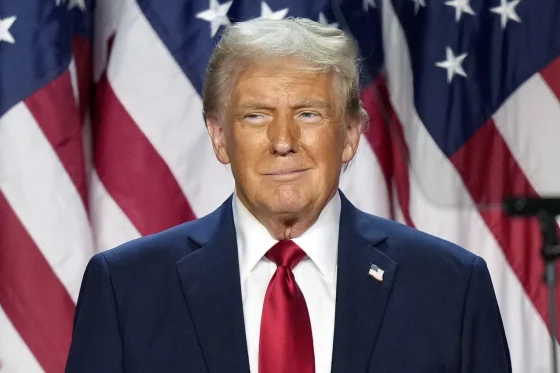Tale of two elections
I have not paid much attention to American politics in general or the country’s presidential election in particular for quite a while.
Of course, like many black people around the world, the Obama campaign of 2008 was something I found thrilling and exciting, given the realistic prospect of the first black man in the White House as President.
I therefore vividly followed the campaign. By 2012 the magic had worn off a bit and I suppose that was the beginning of the dip.
Aside from Ghanaian politics, UK politics has found space in my political mind, which is unsurprising, really, given that I once sojourned in the UK for almost two decades and therefore I am more familiar with their political intricacies and the underlying tones.
However, given that ‘When America sneezes, the rest of the world catches a cold’, as the saying goes, one cannot completely ignore American politics and elections because of its impact on all our lives, one way or the other. I must repent on this matter.
US election post-mortem
Even in my limited awareness of what was going on in the US presidential election campaign, I had assumed, rather naively, I suppose, that there was no way Donald Trump would be able to stage a successful comeback and win the election.
His baggage seemed to weigh him down – a convicted felon who had been locked in a long brawl with the law for some time, sleazy stories around his personal life and a proclivity for shooting from the hip.
As Nana Kwasi Gyan Apenteng, former chairman, National Media Commission, President of the Ghana Association of Writers and a consultant in communication put it in an interesting Facebook post on this election the other day, “At no time would it have made sense to suggest that America would resoundingly endorse a convicted, ill-mannered, badmouth, racist misogynist as President. Hence the question: Why???”
As if in answer to the question, Prof. H. Kwasi Prempeh, Director of the Centre for Democratic Governance, opined in a Facebook post that the Democratic Party had effectively ceded to the Republicans such ‘powerful emotive political symbols’ such as the American flag (which evokes patriotism) and faith (what he calls ‘The Two Fs) as well as material wealth, all symbols that large populations of Americans hold dear, even if mostly in pretence.
Like Nana Apenteng, I have also asked myself not just “Why?” but also “How?” I do share Prof. Prempeh’s argument and have done some reading on post-mortem reports.
Perhaps many who disliked him as a person found what was coming out of his mouth appealing and decided to focus on that instead.
By his unapologetic ‘Make America Great Again’, rhetoric, his constant attacks on immigration, abortion rights and his advocacy for prayer in schools, among others, saying what many dared not say because of what has become known as ‘liberal wokeism’ in America, Trump appeared to have struck a chord, including among some ethnic minorities (usually pro-Democrat) who thought the liberal pendulum had swung too far but were perhaps to embarrassed to publicly support Trump. Fear voters!
His blustery style in the face of all his travails perhaps marked him as a man who knows how to take charge and scare America’s enemies, which ignites patriotic fervour among her citizens. Of course, some analysts have thrown in race and gender as factors that went against Vice-President Kamala Harris.
One can only wait and see what Trump will unleash in his comeback presidency, not just locally, but on global geo-politics, particularly with reference to the Middle East, an almost perennial cauldron of bubbling tensions.
Ghana parallel
Ghana’s presidential election cycle since 1992 has run an interesting parallel with the United States’, giving bucketloads of fodder to political propagandists.
With the exception of 2020, whenever the Democrats won the US presidency, the National Democratic Congress (NDC) romped to victory a month later, with the New Patriotic Party (NPP) winning the same year the Republicans won.
The NDC, on the back of its social democrat credentials, finds alliance with the US Democrats while the NPP sees the Republican party as its soulmate, given their right-of-centre claims. The two parties share the same symbol – the elephant.
In Ghana this year, a sitting Vice-President is facing a former president who was thrown out of office earlier after one term. The US offered the same scenario ahead of its elections.
Trump’s win gives natural fodder to some NDC activists on social media, who were insisting excitedly that this was a good sign that American history would repeat itself in Ghana next month – never mind the faintly ironic spectacle of social democrats here rejoicing at the win of a right-of-centre party in the US.
Not to be outdone, NPP social media activists went to town, reminding everyone that the elephant party had won in the US, which is a good sign, they said.
Added to this is the historical trend of every Republican win in the US followed by an NPP win in Ghana, they insisted.
Of course, it is all amusing propaganda, because I do not think for a moment that in strategy meetings at the high echelons of either of the two parties, US trends and issues come into play.
The issues are entirely different, even if there have been some striking similarities in the past.
No serious strategist would give much thought to US election outcomes ahead of Ghanaian elections.
After all, as I noted the other day on Facebook, “Kansas is not Kasoa, Arkansas is not Ankaase, and New York City is not Gomoa New York”.



